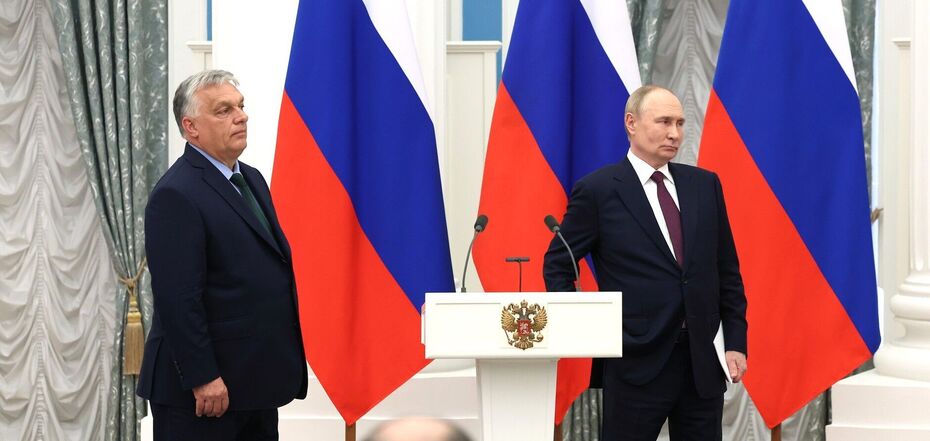News
Hungary has started a new political game: how it blackmails Ukraine "in exchange for sanctions" against Russia
Hungary is blocking the extension of EU (European Union) sanctions against Russia, demanding the exclusion of eight people, including Alisher Usmanov, Mikhail Fridman, and Petr Aven. In exchange for the restrictions, Budapest demands guarantees of participation in gas negotiations with Ukraine.
Reuters reports. The EU sanctions against Russia are divided into two parts: economic restrictions and a list of individuals and legal entities subject to asset freezes and travel bans.
Their extension requires a unanimous vote of all EU members, and Hungary has repeatedly used this mechanism to negotiate. Hungarian Foreign Minister Peter Szijjarto said that Budapest "will not agree to rush" to expand the sanctions list without appropriate guarantees. In January, Hungary had already delayed the resumption of economic sanctions until the European Commission agreed to include it in negotiations on the transit of Russian gas through Ukraine.
Who does Hungary want to exempt from sanctions
Journalists have found out the names of the people Hungary is trying to exclude from the EU sanctions list. Among them:
- Alisher Usmanov, a Russian oligarch who is close to Vladimir Putin;
- Gulbahor Ismailova, Usmanov's sister and the owner of his foreign assets;
- Mikhail Fridman, co-founder of Alfa-Bank and an influential investor;
- Petr Aven, Friedman's business partner, under EU sanctions since February 2022;
- Dmitry Mazepin, owner of the Uralchem chemical holding;
- Vyacheslav Moshe Kantor – former president of the European Jewish Congress, has close ties to the Kremlin;
- Musa Bazhaev, an oil tycoon whose business supports strategic sectors of the Russian economy;
- Mikhail Degtyarev, the Russian Minister of Sports, who has supported the self-proclaimed republics of Donbas.
In addition to the revision of sanctions, Hungary is also demanding guarantees of participation in negotiations on gas transit through Ukraine. Russian gas flows stopped on January 1, 2025, after the transit contract between Ukraine and Gazprom expired. Szijjarto expressed dissatisfaction with the fact that Hungary was not invited to the meeting between Ukraine and Slovakia, while the European Commission assured that it plans to involve Budapest in future negotiations.
As OBOZ.UA previously reported, the Russian coal industry is going through a severe crisis caused by the effects of Western sanctions and difficulties with exports. Against this background, the largest coal mining companies in Russia reported 50 billion rubles (about $0.58 billion) in net losses.
Only verified information is available on the OBOZ.UA Telegram channel and Viber. Do not fall for fakes!



























